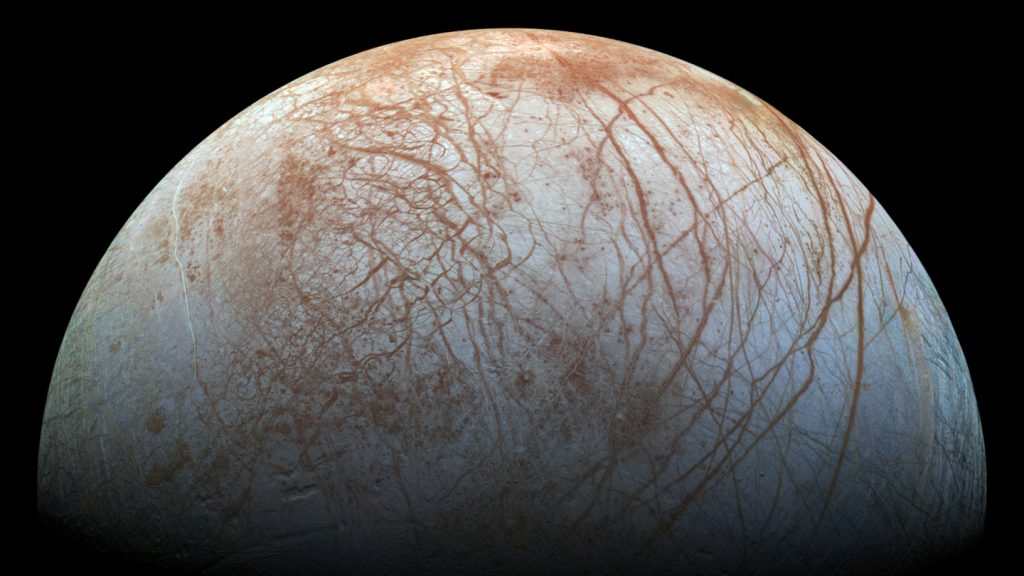Planetary scientist Paul Byrne presented research on Europa, a moon of Jupiter thought to have a subsurface ocean, during the Lunar and Planetary Science Conference. Byrne believes that there is no geologic activity occurring on the ocean floor of Europa, raising questions about the moon’s potential habitability and the existence of life. The mysterious nature of Europa’s seafloor and its ability to nurture life may hold the key to understanding how common life is in the universe.
Europa is considered one of the most promising places to search for life in our solar system, alongside Saturn’s moons Enceladus and Titan. However, the upcoming launch of NASA’s Europa Clipper mission in October brings uncertainty about the habitability of Europa’s ice-covered sea. Recent research suggests that volcanism on the seafloor of Europa is unlikely, which may indicate that the moon’s ocean is uninhabitable. The existence of enough buoyant magma necessary to breach the overlying rock and reach the seafloor remains a challenging aspect for Europa’s potential habitability.
There are conflicting findings regarding the geologic activity on Europa’s seafloor, as some researchers believe that unexplained mechanisms could be at play within the moon, similar to moonquakes recorded on Earth’s moon. The possibility of Europa-quakes may revitalize discussions about the moon’s habitability, especially if seismic activities occur deep within its rocky interior. Past periods of habitability on Europa and the cyclical nature of its moon Io’s influence could have enormous implications for the search for life beyond Earth.
The Europa Clipper spacecraft, set to launch soon, may not definitively solve the debate on Europa’s seafloor activity. However, it is expected to confirm the existence of Europa’s ocean and gather significant data that could shed light on the moon’s habitability. If the spacecraft finds material from the ocean on Europa’s surface and analyzes compositional data, it may provide insights into whether the ocean on Europa contains the necessary ingredients for life. The mission’s findings could play a crucial role in understanding the potential habitability of Europa and the search for extraterrestrial life in the universe.


